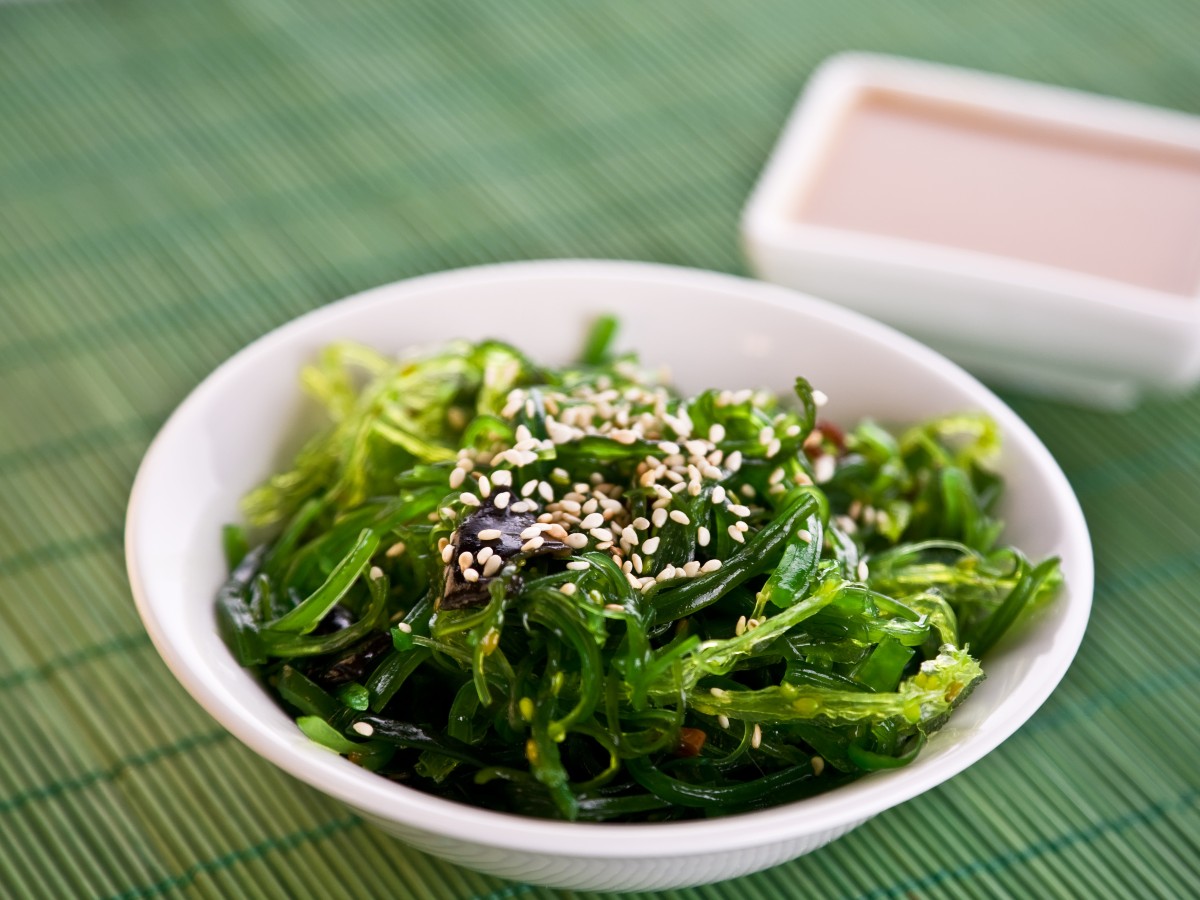

Although they are not part of traditional American cuisine, it’s time to include algae in our menus.
Despite the initial reluctance due to their limited use in Western cuisine, interest in algae is growing exponentially, to the point where they are considered the superfood of the moment. And not without reason.
Their exceptional nutritional profile is excellent and leads to multiple health benefits.
Let’s discover how to incorporate them into our daily diet and enjoy the numerous advantages they offer.
Benefits of Algae: 7 Great Reasons to Rat Them

1. They are a good source of vitamins and minerals
Algae are rich in a wide range of essential vitamins (including vitamins A, C, E, and K) along with a variety of minerals including calcium, magnesium, iron, and iodine. These nutrients are crucial for maintaining overall health and wellness.
Regularly including algae in the diet can help prevent vitamin and mineral deficiencies, promoting general health.
2. They contain a variety of protective antioxidants
Algae are a valuable source of antioxidants, known for their role in protecting cells from damage caused by free radicals, thus reducing the risk of chronic diseases and premature aging.
The presence of antioxidants in this superfood can help reduce inflammation in the body, support cell health, and protect against oxidative damage.
3. Algae promote gut health
This food contains a variety of prebiotic fibers that can promote the growth of beneficial bacteria in the gut. These bacteria play a crucial role in digestive health and balancing the intestinal microbiota.
The fibers in algae can also help regulate blood sugar levels, improve satiety, and promote regularity in bowel movements.

4. They support thyroid health
Algae are one of the best food sources of iodine, an essential mineral for thyroid health. The thyroid plays a crucial role in regulating metabolism, growth, and development, and iodine deficiency can lead to problems such as hypothyroidism.
Regularly incorporating this superfood into the diet can help maintain optimal thyroid function.
However, it’s important to consume algae in moderation, as excess iodine can also cause health problems.
5. Algae support the body’s immune function
Algae contain a wide range of nutrients that can support the body’s immune function. Vitamins, minerals, and antioxidants work together to strengthen the immune system, protecting the body from infections and diseases.
For example, vitamin C is known for its role in supporting white blood cell production, while iron is essential for optimal antibody function.
6. They reduce the risk of heart disease
Being rich in omega-3 fatty acids, fiber, minerals, and antioxidants, algae can contribute to reducing the risk of heart disease.
Specifically, omega-3 fatty acids, in particular, are known for their beneficial effects on the heart and blood vessels, helping to reduce inflammation and improve cardiac function. The fiber in algae can help reduce blood cholesterol levels, while antioxidants can protect heart cells from damage caused by free radicals.
7. They help with weight loss
This superfood plays a fundamental role in weight management due to its ability to delay hunger and reduce fat absorption. The fibers in algae can increase satiety, helping to reduce overall calorie intake. Additionally, some research suggests that compounds found in algae can interfere with fat absorption, further contributing to weight loss.
Incorporating algae into the diet can therefore be helpful for those looking to lose weight in a healthy and sustainable way.

What Exactly are Edible Algae?
The term algae refers to a variety of marine plants ranging from green, red, and brown algae to seaweeds.
Used for thousands of years, especially in Japan, Korea, and China, algae have recently gained international recognition as superfoods due to their impressive nutritional profile.
This food is rich in vitamins, including A, C, E, and K, and minerals such as calcium, magnesium, iron, and iodine. They are also an important source of protein, fiber, and omega-3 fatty acids.
It is believed that there are over 10,000 species of algae, reflecting immense diversity, both in flavor and nutritional value. Among the most appreciated are certainly nori seaweed, which is dried in sheets and widely used to prepare sushi, kombu seaweed, often used in making dashi broth, and wakame, commonly used in salads. Other lesser-known varieties include dulse, arame, kelp, and spirulina.
How to Incorporate Them into Your Daily Diet
Incorporating algae into your diet may seem challenging for those, like us, who follow a diet not accustomed to consuming these marine plants.
However, there are creative ways to integrate algae into American cuisine and benefit from their nutritional properties.
A simple strategy is to add powdered or flaked algae to everyday dishes such as salads, soups, stews, and even smoothies.
For example, nori seaweed can be used to prepare vegetable rolls or flavor popcorn and chips. Kombu can be added to broths, while wakame is great in salads or pasta dishes.
The secret is to experiment with different varieties of algae and preparation methods to make the incorporation of this superfood into your diet more accessible and enjoyable.
This article first appeared on Grazia.it – Author: Miriam Tagini












